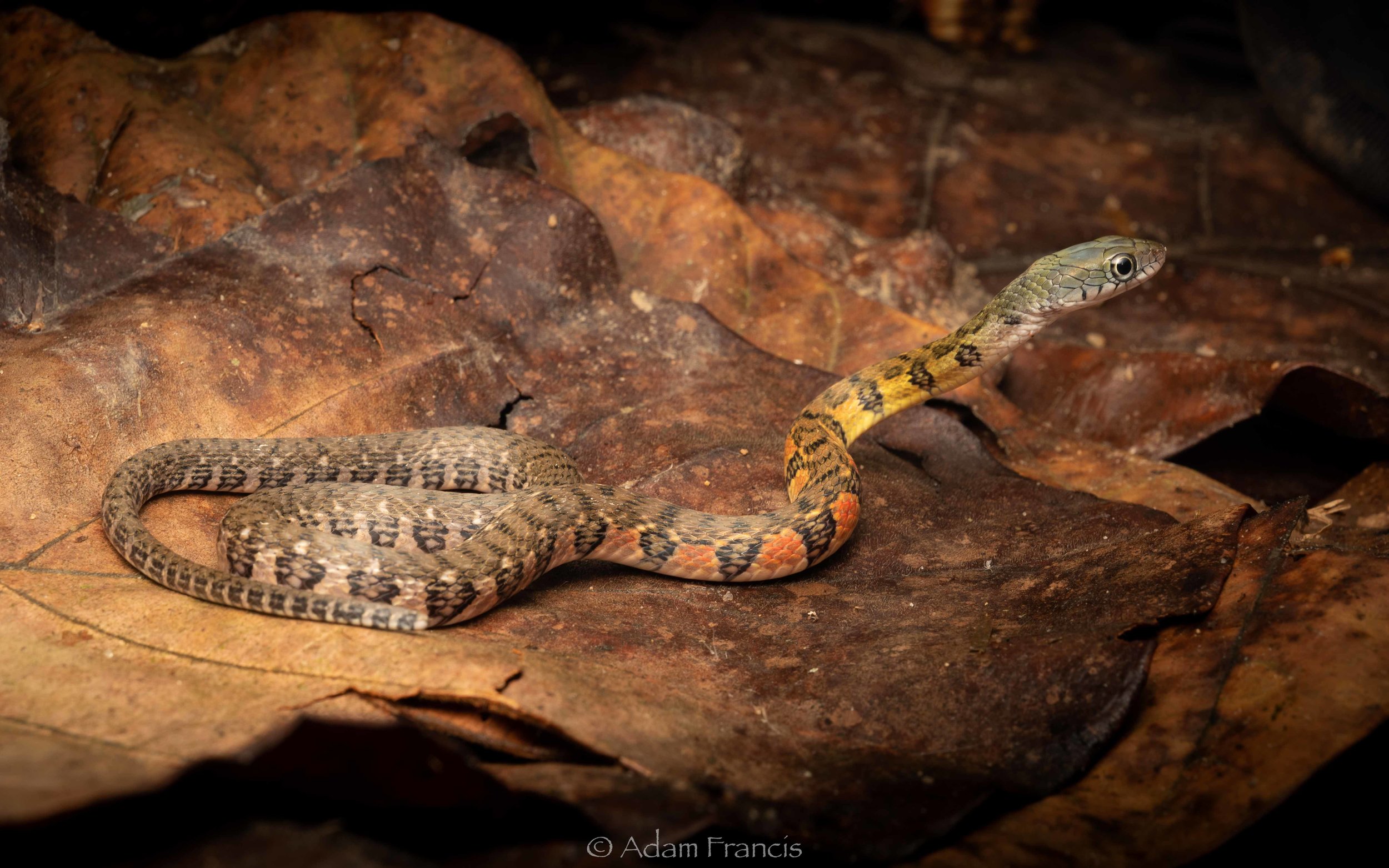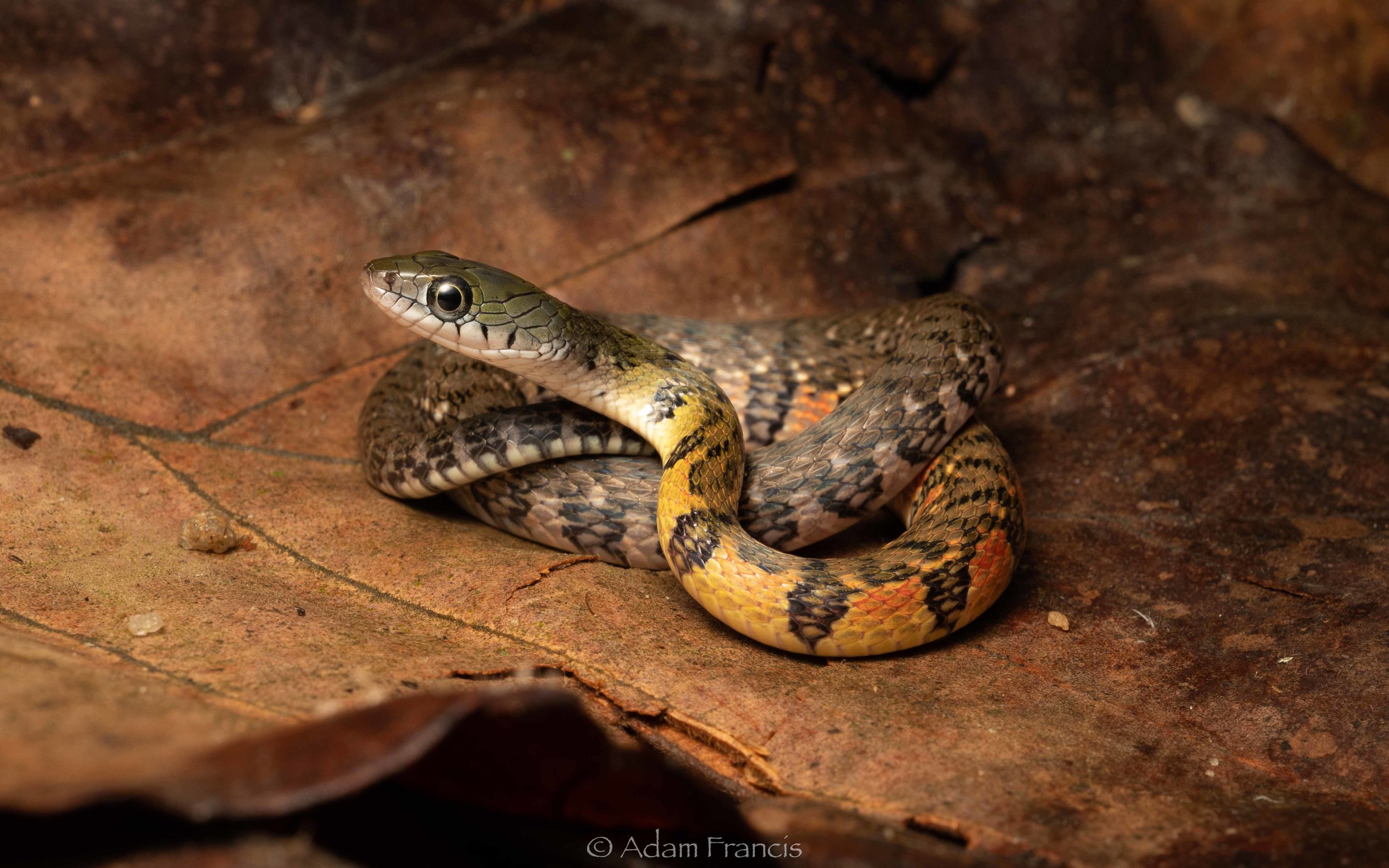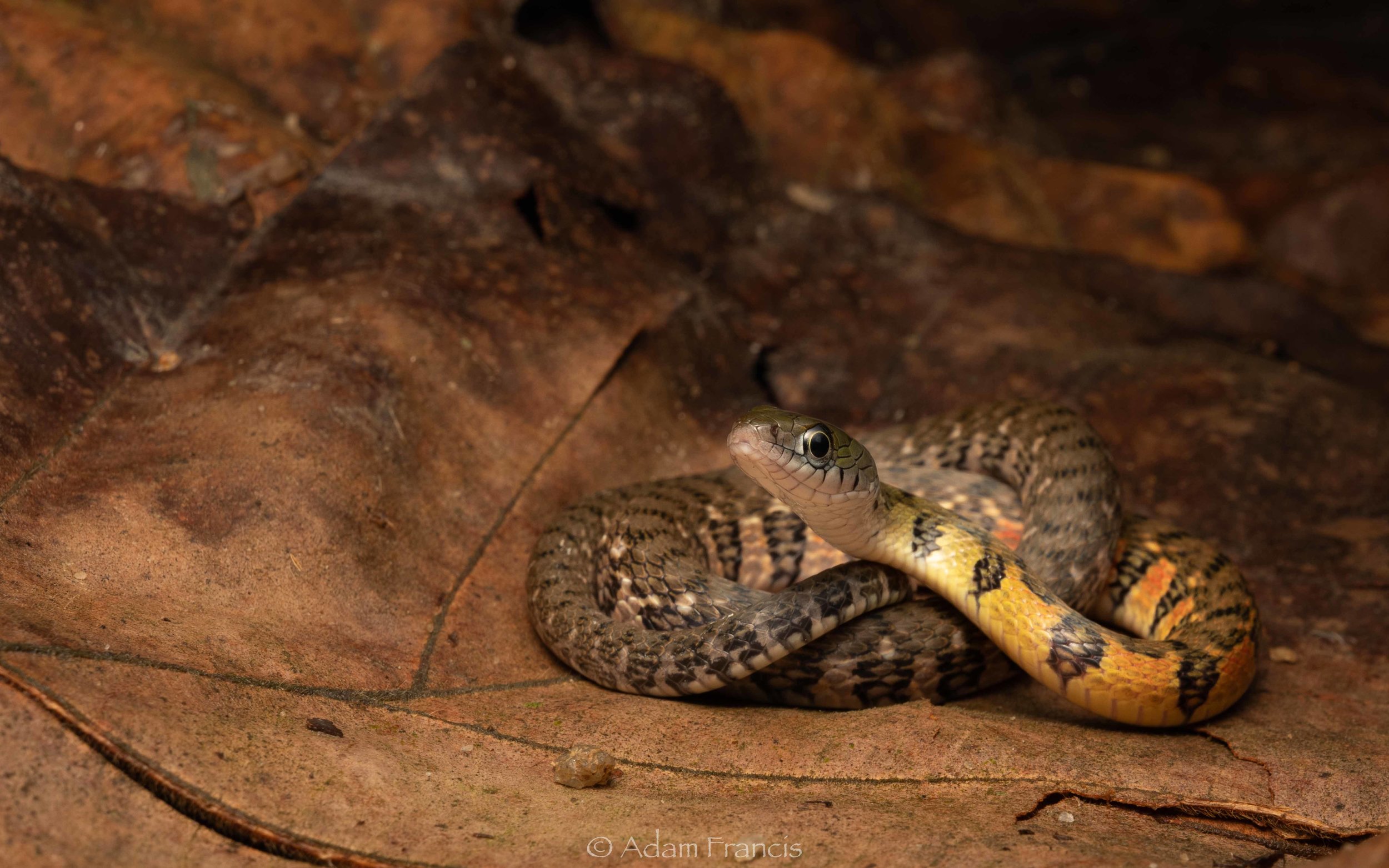SUMMARY
VENOM: None
PREVALENCE: Common
ACTIVE PERIOD: Mostly active at night
KEY ID FEATURES: Light brown or olive body with dark brown and yellow/white vertical banding, more yellow and red towards the neck
BEHAVIOR: Aquatic, may be found in slow or swift move streams, catch waters and pools
SIZE: Small - 60-90cm
OTHER: Aggressive if handled, will bite readily
QUICK ASSESSMENT 0-10
GALLERY
IMPORTANT: Many snakes have significant variance in coloration and pattern even within the same species. There can also be extreme differences in appearance from juveniles to adults so it is important to never assume you have properly identified a snake.



DESCRIPTION
Triangle Keelbacks are light brown or olive green with yellow and red highlights. Yellow and red coloration towards the neck fading into white towards the tails with black saddle markings running the length of the body. Banding only occurs on the sides with the dorsal showing a faded tan to olive pattern. A medium diameter species when mature and can grow between 60 and 90cm. Round pupils and a medium sized head and jaw relative to body size.
BEHAVIOR
Mostly nocturnal Triangle Keelbacks come out at night to hunt fish and amphibians. They have also been observed out during the day in both early morning and at dusk. Quick to bite, musk, roll and squirm excessively but despite being aggressive they are not considered dangerous to humans.
HABITAT
Found largely in in and around still bodies of water but also in stream or perennial puddles. Often in or near forest edges but also in open areas where bodies of water are prevalent.
MISTAKEN IDENTITY
NO SNAKE SHOULD EVER BE HANDLED BY ANYONE BUT EXPERTS: Can be mistaken for some other aquatic snakes but generally not confused with dangerously venomous species.

